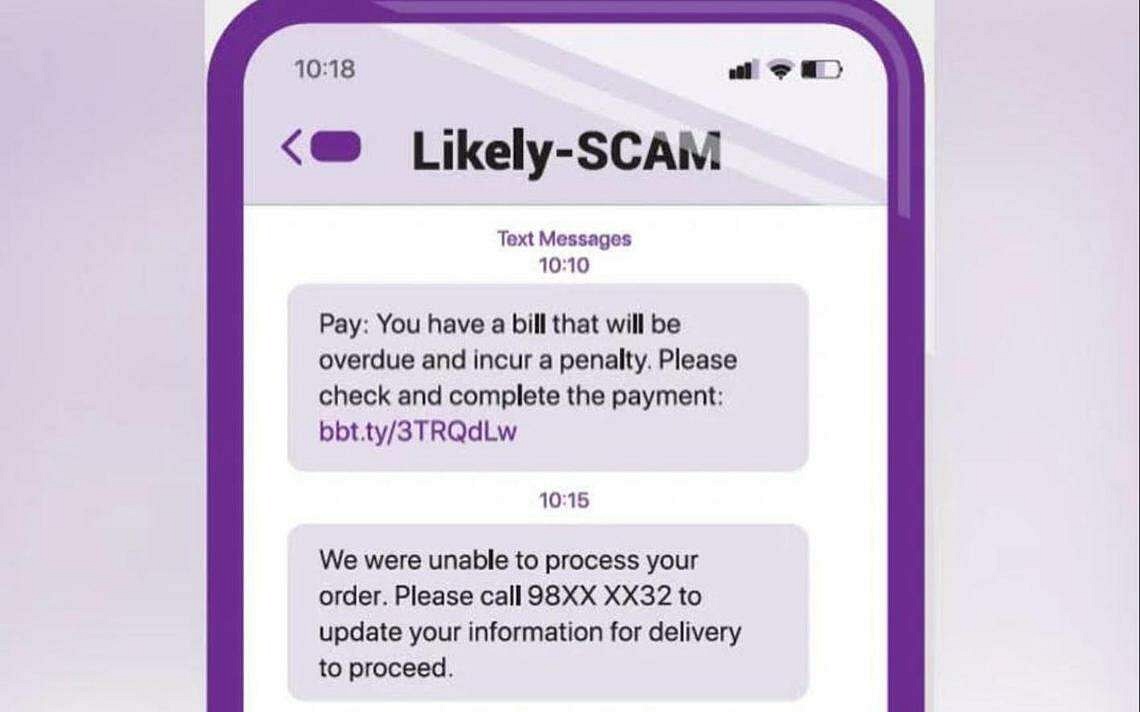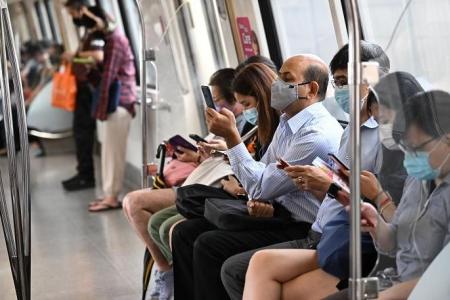Organisations in SMS registry to roll out ‘likely scam’ alerts
About 2,000 organisations have registered with a government central registry designed to help users identify scam messages on their phone.
Companies that are not part of the white list set up by the Infocomm Media Development Authority (IMDA) will have their text messages labelled as “likely scam” on recipients’ phones from Tuesday – and blocked completely if they have not registered by July.
This is part of a new measure to crack down on spoofing messages sent by scammers to trick local users by using nearly identical alphanumeric sender identification (sender ID) used by legitimate organisations.
The IMDA said in an update on Monday that some 2,000 organisations, including major telcos, e-commerce firms and online platforms that often connect with their users over text messages, have registered with the SMS Sender ID Registry.
The number is up from the 1,200 that applied as at last Thursday.
These firms include M1, Singtel, StarHub, Lazada, Shopee, Alibaba Cloud and Google, from whom customers may get SMSes regarding their subscriptions and account log-in attempts.
The white list is operated by the Singapore Network Information Centre, which will verify applicants based on their Accounting and Corporate Regulatory Authority details and unique entity number.
A Google spokesman said in reply to queries from The Straits Times that the measure will help users to avoid scam messages.
Google sends SMSes on users’ verification code when logging into its platforms and apps.
The spokesman said: “Spoofing of sender IDs is a common phishing method by scammers, and is also one of Singaporeans’ top-searched cyber-security topics in 2022.”
Mobile virtual network operators such as China Mobile and RedOne have also registered.
A RedOne spokesman said: “The labelling of ‘likely scam’ from the sender is straightforward, and recipients will be more likely to be wary before taking any further action. This will especially help to reach out to the uninformed and the elderly.”
Companies that use third-party services – or aggregators – to send their SMSes may find that their texts are flagged as “likely scam” if the service provider is not in the registry.
IMDA urges firms to choose aggregators that are part of the registry to avoid this problem.
At least 2,600 SMS sender IDs have been registered with the IMDA, which has reached out to organisations through associations, such as the Singapore Business Federation, Singapore International Chamber of Commerce and Association of Banks in Singapore, to encourage them to sign up.
After the registry was set up in March 2022, the Republic saw a 64 per cent reduction in scams through SMS from the last quarter of 2021 to the second quarter of 2022, said IMDA.
It added that scam cases perpetrated via SMS made up around 8 per cent of scam reports in the second quarter of 2022, down from 10 per cent in the same period of 2021.
How the SMS Sender ID Registry works

Currently, organisations register their protected sender IDs but scammers are still able to use lookalike IDs that are not registered.
From Tuesday, all unregistered sender IDs will be marked as “likely scam” for a transition period of six months. After this period, messages with these unregistered IDs will be blocked and not delivered to users.
This will cover all sender IDs that come from local and overseas sources, but does not apply to person-to-person texts.
There will be a one-time set-up fee of $500 per firm and an annual charge of $200 per registered sender ID.
Organisations keen to register can contact the Singapore Network Information Centre at smsregistry@sgnic.sg
Get The New Paper on your phone with the free TNP app. Download from the Apple App Store or Google Play Store now

